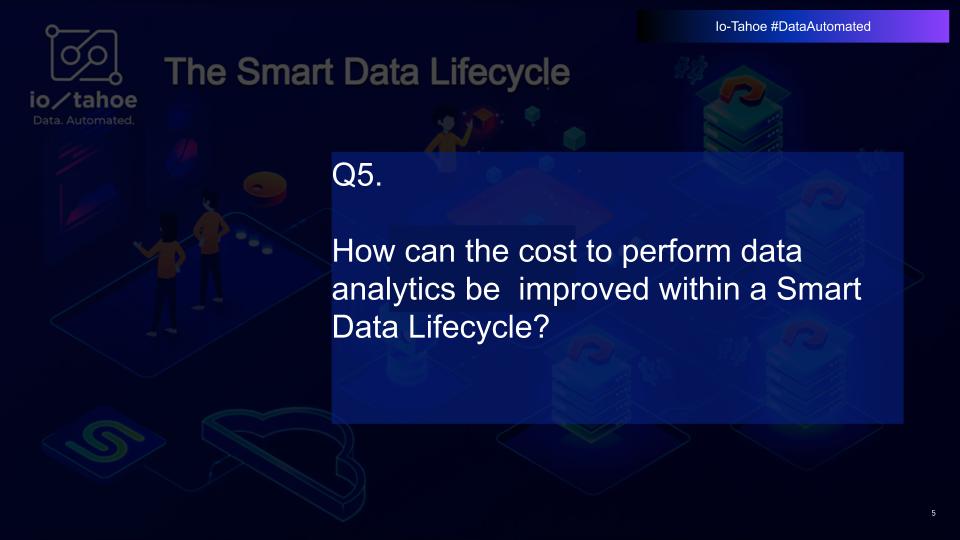
Dave Vellante35










Q5.
How can the cost to perform data analytics be improved within a Smart Data Lifecycle?
https://www.crowdchat.net/s/662tk
How can the cost to perform data analytics be improved within a Smart Data Lifecycle?
https://www.crowdchat.net/s/662tk

Yusef Khan
A Smart Data Lifecycle can massively reduce the cost of performing high quality data analytics. You can get to a single source of the truth much more easily, you'll have less duplicate data and you can deploy self-serve analytics to business users with confidence.

Gareth D Miles
@dvella 60-70% of a Data Scientists efforts are often spent wrangling data rather than developing revenue generating algorithms, Io-Tahoe flips this on its head automating the discovery process, increasing the accuracy value of data, giving scientists and users time to make money

Yusef Khan
Data Analysts and Data Scientists will spend less time wrangling data and more time on value add analysis and building advanced models. You'll have less, better reporting - no longer multiple slightly different copies of the same report!

Patrick Smith
The Smart Data Lifecycle helps organisations understand their data; it’s key to driving analytics, making sure the datasets are optimal, delivering cost efficiency, improved time to insight and ultimately competitive differentiation.

Yusef Khan
How many times do you see businesses buy the next greatest MI tool only to be let down by the underlying data?!

ajay vohora
is this also about recognizing that not all data is the same or has the same value? Moving the data that you need to the right platform to execute workloads is part of working smarter with data.

Dave Vellante
so true Yusef, and with skills shortage the last thing you want is wasting time of a top resource

Ezat Dayeh
Consolidation of data into a single platform where analytics can be run, or at least provisioned from, reduces cost significantly

Adam Worthington
By reducing the Total Cost of Ownership cross all elements – through automation reduce the amount of time Data Scientists need to spend chasing and understanding data.

Adam Worthington
By reducing infrastructure and application silos

Adam Worthington
By reducing the copies of data within, and across infrastructure and application silos













